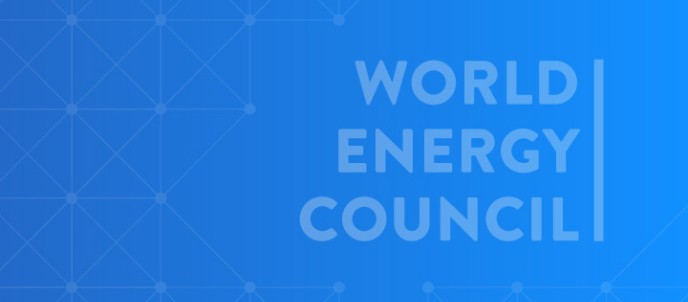One evening in late October 2018, working on a training concept for sales and marketing personnel in the Energy Service sector of Siemens AG, HR called me and asked whether I would be willing to work for the World Energy Council in Berlin for 18 months, as a delegate of Siemens AG. HR gave me until the next morning to decide – I didn’t need that long. Having read the job description, I called back within a few minutes and said yes. After an interview with the managing director and the office manager of WEC Germany in November and a few months of internal corporate processing, I started my delegation in February 2019.
What a ride it has been for the past six months! Immediately, I became editor of the German member committee’s yearly publication Energy for Germany, culminating in its publication in June 2019. Also, right from the start I was asked to take on the Power-to-X activities within the member committee, as I had experience with Power-to-Gas from my past work at Siemens. Already in February, I presented the German member committee’s own study on Power-to-X in Munich to hundreds of oil traders. In March I talked about Climate Change to well over a hundred students during BERMUN (Berlin Model United Nations). I participated in several events from private and governmental institutions dealing with green hydrogen, its derivative products and the overall energy transition, e.g. the BETD (Berlin Energy Transition Dialogue) in April. I started co-leading events on Power-to-X in May, national events with the Federal Ministry of Energy as well as the international Innovation Forum in London in June. In July I had the opportunity to teach 7-10 graders at a local school about careers in the energy business – a topic I am familiar with, as I am closing in on 30 years in the energy field, having started my studies in energy engineering in late 1990.
The exciting events aren’t ending; in August, I am participating in the Baltic Sea Roundtable, in September I will be in Abu Dhabi during our World Energy Congress, in October I will co-lead an event on the energy transition in the university of St Andrews during their Green Week with a colleague from WEC London, in November there will be more events on Power-to-X in San Francisco and in London in cooperation with the global WEC, while we are hosting the Energy Day in Berlin in November, too. And before the year ends, I will be in Santiago de Chile in December to support COP25.
Of course, events aren’t the only thing that we’re doing in the World Energy Council, I am also the project manager for the 2019 Blueprint survey and we will start the editorial process for the 2020 Energy for Germany publication later this year, too.
Sounds busy? You bet! It is hugely rewarding, though. And there is still time to tend to member’s requests, write monthly newsletters, answer email questions from the public and participate in global webinars. I treasure the discussions we have amongst ourselves in the office, too, about the pros and cons of blue hydrogen, carbon capture and storage and other topics that are relevant to decarbonization and the energy transition overall. This is a major perk of working with my magnificent colleagues here at the German member committee.
Once we publish something, be it as our own publication or just as a discussion piece in an event, I am thrilled about the two-way street our communication and in part education works in the German member committee: It goes without saying that we provide fact-based information about energy topics, that we are politically independent and neutral towards energy sources and industries. What I find particularly exciting, though, is that we are both committed to give attention to the global aspects of energy and environmental policies in the national debate, as well as represent the national energy policies in the global discussions. This requires a flexible mindset to look above and beyond our own reference framework and teaches us the power of perspective.
Last but not least, I am particularly happy how well my previous experience at Siemens blends with and complements my current role. As the energy business of Siemens is striving for a greener future, the world is struggling to meet the climate targets of Paris while maintaining a sustainable supply of energy for the benefit of all people. Let there be no mistake: How we supply energy to all people will determine the fate of humanity. I feel very fortunate that my life so far has prepared me well for this challenge; studying engineering gave me the science to understand energy and climate change, working in a large corporation for 20 years gave me the tools to manage projects, acting in an English-language theatre group gave me the language and confidence to speak freely in front of large international groups. Finally and most importantly, being a father of two adult daughters gives me the passion to join and be an active part of the epic battle of humanity fighting climate change.

